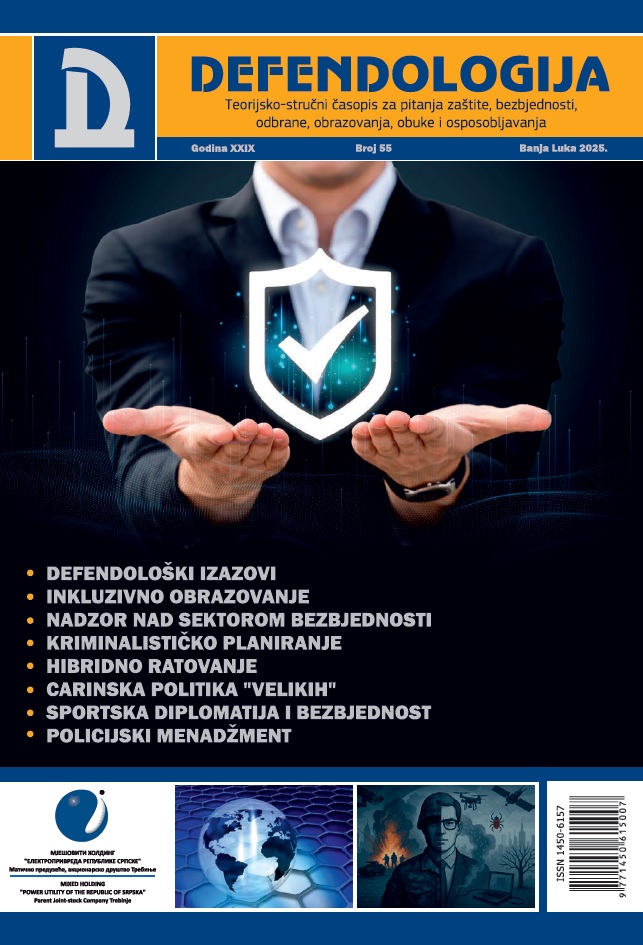SPORTS DIPLOMACY AND SECURITY CHALLENGES DURING THE COLD WAR
DOI:
https://doi.org/10.7251/DEFEN2559151MAbstract
This paper explores the complex interconnection between sports diplomacy and security challenges during the Cold War period (1947- 1991). During this period of ideological divisions between East and West, sports competitions often served as a substitute for direct confrontation between superpowers. The paper analyzes how sporting events, such as the Olympic Games and other international competitions, were instrumentalized by states to achieve diplomatic goals and project soft power. Special attention is given to significant incidents such as the boycotts of the Olympic Games in Moscow 1980 and Los Angeles 1984, as well as the so-called «ping-pong diplomacy» which paved the way for the normalization of relations between the USA and China. Through analysis of historical documents, diplomatic archives, and secondary sources, the paper demonstrates how sport functioned as an arena for security competition, but paradoxically also as a bridge for dialogue in a period of intense geopolitical tensions. The conclusions indicate that sports diplomacy, despite its instrumentalization, often managed to open diplomatic channels that would otherwise have remained closed, contributing to a certain degree of stability in the Cold War security environment.
